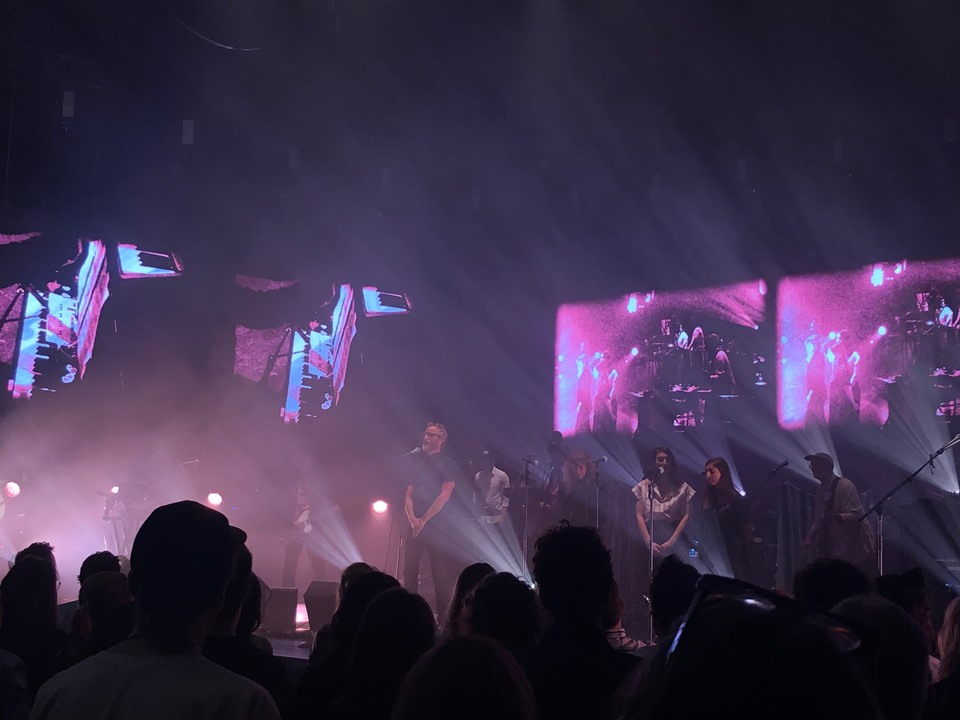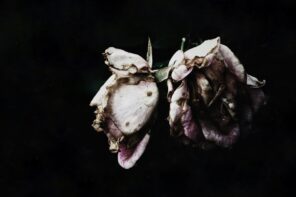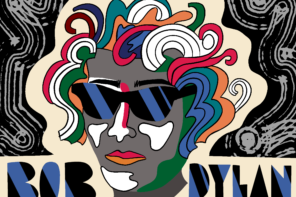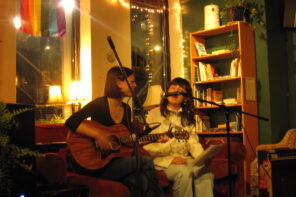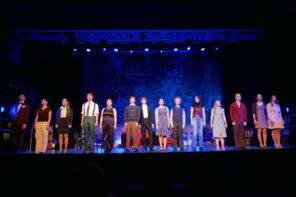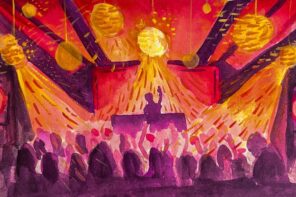I’ve only been a fan of The National for 10 months, since I saw them perform at Osheaga in 2018. Knowing only two of their songs, I wandered away from my friends to watch the set, and in the 45 minutes that I stood there, something shifted and I was hooked. Miraculously, I jumped on the bandwagon at just the right time; this year the Brooklyn-based group, comprised of lead vocalist Matt Berninger, guitarists Bryce and Aaron Dessner, bassist Scott Devendorf and drummer Bryan Devendorf, has reached new artistic heights with a slew of creative triumphs.
In April, they released their eighth album, I Am Easy To Find; distributed alongside the music was a mesmerizing short film of the same name, directed by Mike Mills and starring Alicia Vikander. They then embarked on what will be a year-long, 53-city world tour, and their experimental project with Icelandic artist Ragnar Kjartansson, conceived in 2013, is currently on display at the MAC. Before their performance at Place des Arts on June 21st, the Dessners held a discussion at the museum to discuss the exhibit and the band.
The project on display, called “A Lot of Sorrow,” is a video of a live performance that The National did in 2013 at the invitation of Kjartansson. The premise is simple: the band was challenged to play their song “Sorrow” over and over again for six hours without stopping — 106 performances of the same tune in total, complete with emotional breakdowns and bloody, blistered fingers. Besides being an unbelievable test of endurance for the group, it also feels like a journey to enlightenment: viewers can witness the song shift slightly into new iterations with each play.
[T]he band was challenged to play their song “Sorrow” over and over again for six hours without stopping.
That propensity for evolution over reinvention can be seen most recently on I Am Easy To Find. It sounds like The National, but it’s also unlike anything they’ve done before, perhaps most obviously because Berninger is not the only singer on the album: he’s joined this time by an array of talented artists including Gail Ann Dorsey, Lisa Hannigan, Sharon Van Etten, and Kate Stables. “We weren’t trying to gender-cast the album,” Bryce Dessner remarked at the museum, noting that the guest vocalists, coincidentally all women, were friends and previous collaborators of the group. Sometimes Berninger is merely featured on a track, and sometimes he’s not heard at all, but the introduction of these new voices feels refreshing just the same.
The album was also born out of an unusual process. Right as The National were getting ready to tour their seventh album, Sleep Well Beast, Berninger received an email from one of his favourite American directors: Mike Mills, helmer of Beginners and 20th Century Women. Hoping for a chance to work with his favourite artists, Mills offered to direct a music video — what emerged instead was a fulfilling creative partnership and the beginning of a new era for both director and band.
Typically, the Dessners will write the music for a song, going back and forth with Berninger, who adds lyrics once he connects with one of their compositions. This time, Berninger also sent rough cuts to Mills, who conceived the idea for the film from a few listening sessions. Over time, the two sent the fragments of their projects to each other, building off of the other’s work; the film was finished first, and by that time, the band members were so comfortable with Mills that they invited him to serve as executive producer on the album.
Mills offered to direct a music video — what emerged instead was a fulfilling creative partnership and the beginning of a new era for both director and band.
Make no mistake — Mills’ film is not a music video. Instead, it’s a short that walks us through a lifetime of compressed moments. Vikander plays the subject, and she demonstrates an understanding of human physicality that reflects The National’s understanding of human vulnerability. It’s striking to watch her play a newborn baby, a little girl, a teenager, an adult, an old woman, a dying human being in the span of 24 minutes. Berninger liked some of the subtitles used in the film so much that he used many of them as lyrics on the album.
And what an album it is! Sprawling, light and gorgeous, but also the band’s longest and with a dense list of personnel (just shy of 100 people, by my count.) In fact, I Am Easy To Find feels remarkably vast for something that, in its final form, is such an intimate experience. It would be silly not to mention the unique contributions of Carin Besser, former fiction editor at The New Yorker and Berninger’s wife, who has been co-writing songs by The National since 2005. Aaron Dessner described Besser’s process as such: she writes from her husband’s perspective, but in doing so, she often tells him something about himself that he would otherwise not notice, which is both an incredibly funny thing to imagine and apparently makes for great music.
During their discussion, the Dessners joke that the “Sorrow” performance made them feel like The National was “high art,” but fans of the band know that they always have been. Their virtuosic instrumental skill is combined with conversational lyricism, almost as though mid-thought, beautiful and vulnerable, and sometimes laugh out loud funny. This was never more evident to me than it was a few hours later at their concert, which was probably the most fun I’ve ever had at a show.
Berninger is such an energetic performer, a true showman, shuffling around during the songs and interacting with the audience without missing a lyric. He frequently took audience members’ phones to record his own mid-show antics. He ventured out into the crowd multiple times, at one point apparently trying to climb onto one of the Place des Arts balconies. Incidentally, he was absolutely sloshed as he did all of this, throwing at least three empty red solo cups into the crowd over the course of the show.
Their virtuosic instrumental skill is combined with conversational lyricism, almost as though mid-thought, beautiful and vulnerable, and sometimes laugh out loud funny.
At the end of the concert, the band ushered the audience to squish closer to the stage, where they set up a microphone directed towards our seats and had the entire venue sing the song “Vanderlyle Crybaby Geeks” with them, Berninger leading without a mic, the only instrumental accompaniment being Aaron Dessner’s acoustic guitar. “Don’t fuck it up!” Berninger yelled at the audience. We didn’t. And it was a perfect moment.
Over the course of The National’s 20-year career, the band’s sound has often been characterized as somber or melancholy, which the Dessners laugh off, saying that it’s a side effect of both Berninger’s baritone and Aaron’s preference for minor chords. With such a great year behind them and such a promising one ahead, even their saddest songs feel less like laments and more like celebrations of life, through all of its highs and lows. That’s two decades of catharsis, hope, anguish, relief — and surely many more to come, if the last 12 months have been any indication.
The National’s eighth studio album, ‘I Am Easy To Find’, is now available to purchase and stream. You can watch the Mike Mills short film here. Their project with Ragnar Kjartansson is on display at the MAC until July 28th, 2019.

